Ambiences and Tendencies
 |
 |
 |
 |
 |
 |
 |
The Music of Today’s Generation:
A Downward Trend?
Hi,
I am a young woman in my 20s and I enjoy reading Tradition in Action. I have a question. Do you think that not only clothing and manners, but also the scents in perfume and even the music that the new generation prefer also reflect a downward trend?
People back in the days listened to less vulgar music. And now most young people that I know of, dislike classical music and there is even a decline in Classical music concerts.
I hope you can answer my question and sorry if my question seems silly.
Thank you for your time.
God Bless you.
A.M.
Hello A.M.,
We at TIA appreciate your compliments on the material on our website and are pleased to respond to your questions, which I will break down into two topics: The question of whether the music the new generation prefers represents a downward trend and the question about their taste in perfumes. I will address first the question of music.
There is no doubt that the music of today represents a downward spiral toward the vulgar and even the openly Satanic. Some clarification is needed, however, about your affirmation that "people back in the days listened to less vulgar music."
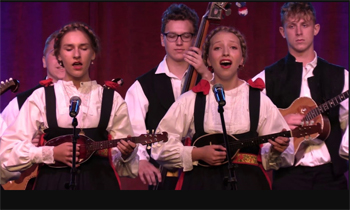
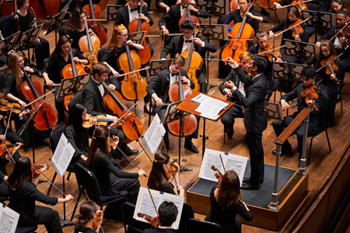 If you mean "back in the days" to refer to a long time ago – Middle Ages, for example – and the folk music of the European and American peoples that continued in that spirit, reflecting their personalities, charm and innocence, even up until the 20th century, then I would agree with this statement.
If you mean "back in the days" to refer to a long time ago – Middle Ages, for example – and the folk music of the European and American peoples that continued in that spirit, reflecting their personalities, charm and innocence, even up until the 20th century, then I would agree with this statement.
If you mean classical music performed by ensembles, choirs or individual instruments (flute, harp, etc.), I would partly agree with this statement: Although much of classical music still maintains certain counter-revolutionary rules of aesthetics, hierarchy, calm and beauty that are important to uphold in our revolutionary times when egalitarianism, ugliness and turmoil reign, it is good to remember that certain composers and genres tend to be problematic since they have been infected with the Revolution, which started in the Renaissance. (1)
But if you mean the "popular" music of the 1920s forward, up to and including the period of soft rock, I would disagree. For this music was already corrupted by sensual lyrics, harmonies & rhythms, and it is only in "degrees" that it differs in its vulgarity and immorality: e.g. a little less bad or vulgar, a little less immoral, etc. Ultimately, once you enter the track of jazz or rock, you – or your children or grandchildren – have entered the vulgar and sensual grooves of a music that ultimately ends in degradation because it was created and designed by the Devil from the outset for this purpose.
To confirm this, I need only point to the series on rock music by Fr. Jean-Paul Régimbal we have posted on our site. He notes that during an exorcism performed by a Californian priest on a youth addicted to rock music, the evil spirit revealed who he was in these words: "I am a Prince and I have arrived. I am coming to possess a whole race, the youth of America."
The gradual march toward the demonic
I would also suggest you read this article entitled "The Principle of Gradualism, the Devious Law for Evil to Progress" by Prof. Plinio. It explains how the long and victorious march toward the corruption of customs, dress, music and clothing did not proceed by leaps and bounds, but by stages.
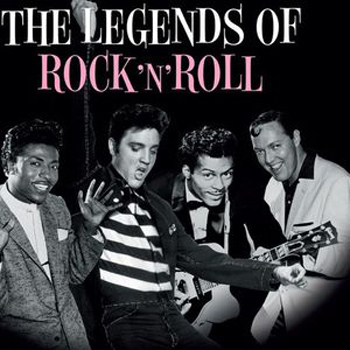 I am certainly no doyen on the music world of the last decades, but I will point to a few of the general trends to explain the principle.
I am certainly no doyen on the music world of the last decades, but I will point to a few of the general trends to explain the principle.
Rock originated from African-American music such as gospel, jump blues, jazz, boogie woogie and blues that rose and flourished in the 1920s, '30s and '40s.
Jazz "artists" like Louis Armstrong, Duke Ellington and Count Basie, big band or swing singers like Glen Miller and the Dorsey Brothers, crooners like Bing Crosby and Dean Martin, blues singers like Bessie Smith and Ma Rainey, and Broadway film composers like George and Ira Gershwin, Cole Porter and Irving Berlin all adopted the new jazz and blues beat. What emerged was a genre: new, electric, stimulating, romantic and sensual.
Need I say, the songs from this period would be considered almost "classical" by many persons today. They are not. They are revolutionary and should be rejected because they were introduced to acclimate fans to the rock music that would soon emerge.
The rock 'n roll that appeared in the late 1950s did in fact shock the older generations; they were scandalized by the provocative and obscene movements of Little Richard and Elvis Presley, and then, horror of horrors, the long-haired of Liverpool rebels, the Beatles, who turned young daughters into hysterical screaming maniacs.
Once again, let me note, these first rock bands, so radical in their day, are considered conservative and even "good" and "harmless" by many supposed conservative and traditional Catholic parents of the 21st century.
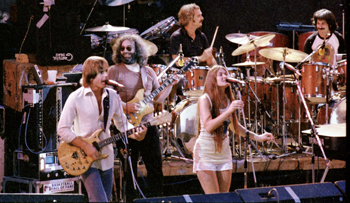
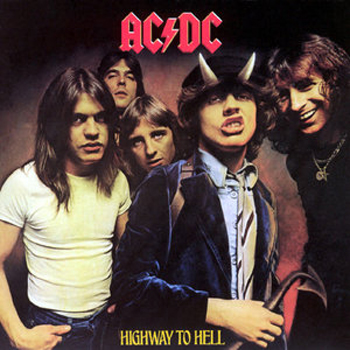 I say "supposed" because I do not believe a true traditionalist can honestly term himself thus unless he rejects jazz and rock music of every genre. The vigilant Catholic who understands the principle of graduality will realize the incipient danger in becoming accustomed to a music designed to disorder the spirit and unleash the passions.
I say "supposed" because I do not believe a true traditionalist can honestly term himself thus unless he rejects jazz and rock music of every genre. The vigilant Catholic who understands the principle of graduality will realize the incipient danger in becoming accustomed to a music designed to disorder the spirit and unleash the passions.
The conservative youth of the 1960s and 1970s could choose the milder country-style or melancholy music like that of Glen Campbell, the Carpenters, John Denver, the Eagles, Fleetwood Mac, Roberta Flack, Olivia Newton John, Simon & Garfunkel, Crosby, Stills & Nash, etc.
The more revolutionary and "with it" youth moved on to the Rolling Stones, AC/DC, the Grateful Dead, KISS, Black Sabbath, Led Zeppelin and so many others.
But the rock beat undulated in all of it – soft or hard – and while the milder funk groups basically celebrated findin' and makin' love, the heavier rock was already speaking of the road to Satan, drugs and despair.
We know how rock 'n roll evolved to hard and acid rock, heavy metal with all its sub genres like death metal, black metal, thrash metal, etc,. Rappers, hip hoppers, the list goes on and on. Always louder, bolder, faster and increasingly disordered and Satanic.
Many parents today condemn the hard rock of their children's generation, but excuse and even praise the rock music they listened to when they were young. I have had older traditionalist friends send me videos of their '50s music – e.g. Rock, Rock, Rock around the Clock – praising the music and dance of the "good old days." They are gravely in error.
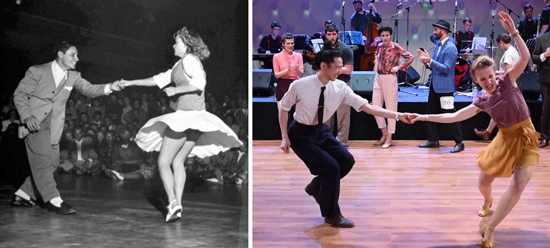 The "very bad" rock music they condemn found its root in the rock music from those "good old days'' they celebrate. What I would like to make clear is that all the vulgarity, obscenity and Satanic spirit found in today's music was present in the first movement of jazz, blues and rock (which had a long preparation in certain revolutionary currents of classical music). That first music, which sounds so mild and sanitary today, conditioned all the rest of the process that ended in the explosion of hard rock, death metal, etc.
The "very bad" rock music they condemn found its root in the rock music from those "good old days'' they celebrate. What I would like to make clear is that all the vulgarity, obscenity and Satanic spirit found in today's music was present in the first movement of jazz, blues and rock (which had a long preparation in certain revolutionary currents of classical music). That first music, which sounds so mild and sanitary today, conditioned all the rest of the process that ended in the explosion of hard rock, death metal, etc.
The Church, as the wisest of mothers, always used to counsel her children to avoid the first fall in the passions because she understands that every small infidelity can begin a process that ends in a billowing wave. In that first infidelity is the germ for the greatest release of passion and hatred of order and, ultimately, of God Himself.
 For this reason, we should be vigilant against accepting any and all rock music – from the least bad to the worst – so we do not enter that quickly descending path to vulgarity, obscenity and Satanism.
For this reason, we should be vigilant against accepting any and all rock music – from the least bad to the worst – so we do not enter that quickly descending path to vulgarity, obscenity and Satanism.
The so-called 'Christian rock'

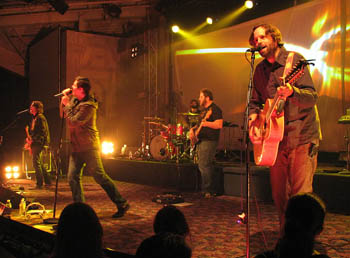 And so we come to what is called "Christian rock," rock bands or singers who affirm their religious beliefs in the lyrics of their rock music.
And so we come to what is called "Christian rock," rock bands or singers who affirm their religious beliefs in the lyrics of their rock music.
This genre started with a kind of soft rock, but it has followed the same inevitable evolutionary process, with the appearance of Christian metal, Christian industrial and Christian punk. It is all still rock music, be it soft or hard, decorated with "Christian" religious imagery and sentiments or not.
Just as there are no good witches and bad witches, no good magic and bad magic, there is no good rock and bad rock. It is all bad and should be avoided and rejected.
In my view, this rock genre is one of the most insidious and dangerous types of rock. Listening to so-called “Christian rock” is not innocent, as so many parents think. It is to enter that revolutionary downward spiral of music, opening the door to the Devil in the name of Jesus Christ or His Blessed Mother.
Some thought on perfumes
Regarding perfumes, the answer as to whether the industry as a whole is following a downward trend is more complex than a simple yes or no.
There are certainly many more cheap and vulgar perfumes, eau de toilettes and eau de colognes available today than there were in the past, simply because of the mass marketing and advertising that now exists. On the other hand, there are also many more delightful and elevated perfumes readily available to the general public.
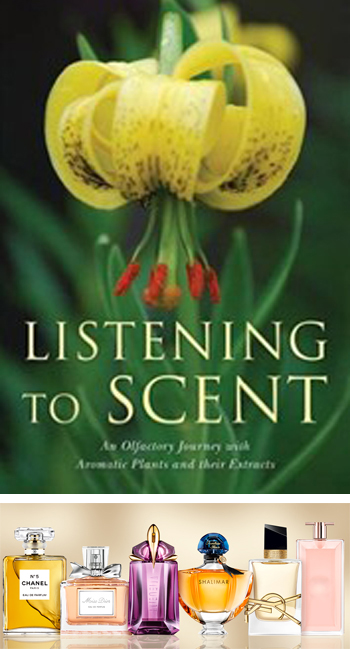 It can certainly be easier to choose the common fragrances for reasons of economy or merely from the lack of refinement of the olfactory sense, and in this sense there could be a general downward trend in perfumes among today's youth.
It can certainly be easier to choose the common fragrances for reasons of economy or merely from the lack of refinement of the olfactory sense, and in this sense there could be a general downward trend in perfumes among today's youth.
I believe that people in the past had a richer olfactory heritage, especially if they had travelled broadly. Even living in the country or closer to nature helped a person to recognize the scents of flowers and woods, and then recognize them in perfumes.
It is a good practice to do exercises to develop and refine the olfactory sense, so that when you choose a perfume it will be primarily for the scent rather than for the publicity it has received or the design of its bottle.
Besides refining the sense of smell, there are a few essential rules you can follow: Avoid heavy or sensual perfumes. Young women of your age should choose light, floral scents and keep clear of the musk and amber perfumes that became popular in the 1960s-1970s, which aimed to disorder the sensibilities and awaken the passions. This is, in my view, the height of vulgarity.
Perfumes should be applied with reserve, not splashed or sprayed liberally over multiple patches of open flesh. In terms of refinement and good taste, less is more when applying a good perfume or eau de cologne.
Perhaps you have the good fortune to know several women who have explored the world of perfumes, and have already discovered many of the delightful and even exquisite scents that are readily available today. If so, I suggest you test some of their good recommendations, accommodate their suggestions to your own tastes, and thus avoid the downward trend in perfumes that generally result from mass production or the intent to arouse sensual or vulgar appetites.
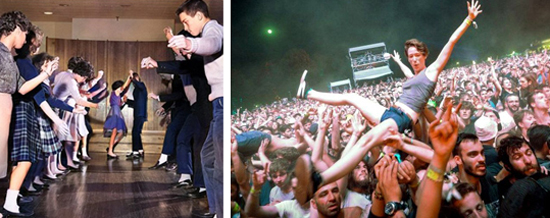

I am a young woman in my 20s and I enjoy reading Tradition in Action. I have a question. Do you think that not only clothing and manners, but also the scents in perfume and even the music that the new generation prefer also reflect a downward trend?
People back in the days listened to less vulgar music. And now most young people that I know of, dislike classical music and there is even a decline in Classical music concerts.
I hope you can answer my question and sorry if my question seems silly.
Thank you for your time.
God Bless you.
A.M.
______________________
Dr. Horvat responds:
Hello A.M.,
We at TIA appreciate your compliments on the material on our website and are pleased to respond to your questions, which I will break down into two topics: The question of whether the music the new generation prefers represents a downward trend and the question about their taste in perfumes. I will address first the question of music.
There is no doubt that the music of today represents a downward spiral toward the vulgar and even the openly Satanic. Some clarification is needed, however, about your affirmation that "people back in the days listened to less vulgar music."

A Croatian ensemble sings traditional folk songs; below, the talented Cleveland youth orchestra

If you mean classical music performed by ensembles, choirs or individual instruments (flute, harp, etc.), I would partly agree with this statement: Although much of classical music still maintains certain counter-revolutionary rules of aesthetics, hierarchy, calm and beauty that are important to uphold in our revolutionary times when egalitarianism, ugliness and turmoil reign, it is good to remember that certain composers and genres tend to be problematic since they have been infected with the Revolution, which started in the Renaissance. (1)
But if you mean the "popular" music of the 1920s forward, up to and including the period of soft rock, I would disagree. For this music was already corrupted by sensual lyrics, harmonies & rhythms, and it is only in "degrees" that it differs in its vulgarity and immorality: e.g. a little less bad or vulgar, a little less immoral, etc. Ultimately, once you enter the track of jazz or rock, you – or your children or grandchildren – have entered the vulgar and sensual grooves of a music that ultimately ends in degradation because it was created and designed by the Devil from the outset for this purpose.
To confirm this, I need only point to the series on rock music by Fr. Jean-Paul Régimbal we have posted on our site. He notes that during an exorcism performed by a Californian priest on a youth addicted to rock music, the evil spirit revealed who he was in these words: "I am a Prince and I have arrived. I am coming to possess a whole race, the youth of America."
The gradual march toward the demonic
I would also suggest you read this article entitled "The Principle of Gradualism, the Devious Law for Evil to Progress" by Prof. Plinio. It explains how the long and victorious march toward the corruption of customs, dress, music and clothing did not proceed by leaps and bounds, but by stages.

Rock legends: shocking in their day,
considered ‘classical’ today
Rock originated from African-American music such as gospel, jump blues, jazz, boogie woogie and blues that rose and flourished in the 1920s, '30s and '40s.
Jazz "artists" like Louis Armstrong, Duke Ellington and Count Basie, big band or swing singers like Glen Miller and the Dorsey Brothers, crooners like Bing Crosby and Dean Martin, blues singers like Bessie Smith and Ma Rainey, and Broadway film composers like George and Ira Gershwin, Cole Porter and Irving Berlin all adopted the new jazz and blues beat. What emerged was a genre: new, electric, stimulating, romantic and sensual.
Need I say, the songs from this period would be considered almost "classical" by many persons today. They are not. They are revolutionary and should be rejected because they were introduced to acclimate fans to the rock music that would soon emerge.
The rock 'n roll that appeared in the late 1950s did in fact shock the older generations; they were scandalized by the provocative and obscene movements of Little Richard and Elvis Presley, and then, horror of horrors, the long-haired of Liverpool rebels, the Beatles, who turned young daughters into hysterical screaming maniacs.
Once again, let me note, these first rock bands, so radical in their day, are considered conservative and even "good" and "harmless" by many supposed conservative and traditional Catholic parents of the 21st century.

A few steps from The Grateful Dead is AC/DC, announcing they pave the way to Hell

The conservative youth of the 1960s and 1970s could choose the milder country-style or melancholy music like that of Glen Campbell, the Carpenters, John Denver, the Eagles, Fleetwood Mac, Roberta Flack, Olivia Newton John, Simon & Garfunkel, Crosby, Stills & Nash, etc.
The more revolutionary and "with it" youth moved on to the Rolling Stones, AC/DC, the Grateful Dead, KISS, Black Sabbath, Led Zeppelin and so many others.
But the rock beat undulated in all of it – soft or hard – and while the milder funk groups basically celebrated findin' and makin' love, the heavier rock was already speaking of the road to Satan, drugs and despair.
We know how rock 'n roll evolved to hard and acid rock, heavy metal with all its sub genres like death metal, black metal, thrash metal, etc,. Rappers, hip hoppers, the list goes on and on. Always louder, bolder, faster and increasingly disordered and Satanic.
Many parents today condemn the hard rock of their children's generation, but excuse and even praise the rock music they listened to when they were young. I have had older traditionalist friends send me videos of their '50s music – e.g. Rock, Rock, Rock around the Clock – praising the music and dance of the "good old days." They are gravely in error.

Early swing dance was shocking to many in the ‘30s and ‘40s;
still immoral in its revival among ‘conservative’ youth today,
The Church, as the wisest of mothers, always used to counsel her children to avoid the first fall in the passions because she understands that every small infidelity can begin a process that ends in a billowing wave. In that first infidelity is the germ for the greatest release of passion and hatred of order and, ultimately, of God Himself.

It started ‘innocently’ but it already contained what it became afterwards
The so-called 'Christian rock'

Still the rock beat, even under the ‘Christian’ name

This genre started with a kind of soft rock, but it has followed the same inevitable evolutionary process, with the appearance of Christian metal, Christian industrial and Christian punk. It is all still rock music, be it soft or hard, decorated with "Christian" religious imagery and sentiments or not.
Just as there are no good witches and bad witches, no good magic and bad magic, there is no good rock and bad rock. It is all bad and should be avoided and rejected.
In my view, this rock genre is one of the most insidious and dangerous types of rock. Listening to so-called “Christian rock” is not innocent, as so many parents think. It is to enter that revolutionary downward spiral of music, opening the door to the Devil in the name of Jesus Christ or His Blessed Mother.
Some thought on perfumes
Regarding perfumes, the answer as to whether the industry as a whole is following a downward trend is more complex than a simple yes or no.
There are certainly many more cheap and vulgar perfumes, eau de toilettes and eau de colognes available today than there were in the past, simply because of the mass marketing and advertising that now exists. On the other hand, there are also many more delightful and elevated perfumes readily available to the general public.

The sense of smell should be refined
I believe that people in the past had a richer olfactory heritage, especially if they had travelled broadly. Even living in the country or closer to nature helped a person to recognize the scents of flowers and woods, and then recognize them in perfumes.
It is a good practice to do exercises to develop and refine the olfactory sense, so that when you choose a perfume it will be primarily for the scent rather than for the publicity it has received or the design of its bottle.
Besides refining the sense of smell, there are a few essential rules you can follow: Avoid heavy or sensual perfumes. Young women of your age should choose light, floral scents and keep clear of the musk and amber perfumes that became popular in the 1960s-1970s, which aimed to disorder the sensibilities and awaken the passions. This is, in my view, the height of vulgarity.
Perfumes should be applied with reserve, not splashed or sprayed liberally over multiple patches of open flesh. In terms of refinement and good taste, less is more when applying a good perfume or eau de cologne.
Perhaps you have the good fortune to know several women who have explored the world of perfumes, and have already discovered many of the delightful and even exquisite scents that are readily available today. If so, I suggest you test some of their good recommendations, accommodate their suggestions to your own tastes, and thus avoid the downward trend in perfumes that generally result from mass production or the intent to arouse sensual or vulgar appetites.

It started in the ‘50s & continued on the downward spiral toward Satanism
- This can be either because of problematic story content (e.g. operas with scandalous storylines), an overabundance of sweetness yet no militancy or violent outbursts of passion and romance. It should also be noted waltzes, ballets and polkas have been condemned by the Church, despite their often being considered more "elegant". Further, the modern classical music is often cacophonous and discordant and so I do not include it in this genre as refined or acceptable. It is important to use counter-revolutionary criteria to help discern which classical music is acceptable or not, and for which occasions.

Posted April 29, 2022
______________________
______________________
 |
 |
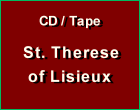 |
 |
 |
 |
 |
 |
 |


